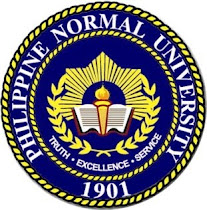"Pagkatapos ano! Hihingi sila ng kapalit? Kabahagi? Kaparte? Pampadulas? Ano pa ang gusto ninyong itawag ko doon! Marami na ang gumawa ng ganoong pagkakamali dati. Uulitin pa ba natin? Hangga't mayroong sila nalilinlang, hindi sila titigil. Hangga't walang umaangal, hindi sila paaawat. At hangga't wala pumahampas sa kanilang mga ulo, hindi sila magigising sa katotohanan na masama ang kanilang ginawang panlalamang sa kapwa."
Friday, August 23, 2013
Itim na Aklat ni Orug Jr.
"Pagkatapos ano! Hihingi sila ng kapalit? Kabahagi? Kaparte? Pampadulas? Ano pa ang gusto ninyong itawag ko doon! Marami na ang gumawa ng ganoong pagkakamali dati. Uulitin pa ba natin? Hangga't mayroong sila nalilinlang, hindi sila titigil. Hangga't walang umaangal, hindi sila paaawat. At hangga't wala pumahampas sa kanilang mga ulo, hindi sila magigising sa katotohanan na masama ang kanilang ginawang panlalamang sa kapwa."
Posted by Teacher Joe at 7:36 PM 0 comments
Tuesday, August 20, 2013
Testimonial Speech during the "Simpleng Handog" Program for 2G Scholars
Posted by Teacher Joe at 2:58 AM 0 comments
Friday, April 13, 2012
The Challenge to the Millennial Teachers (Response of the 2012 Graduates)
Posted by Teacher Joe at 7:32 AM 0 comments
Saturday, December 3, 2011
RA 9710 (MAGNA CARTA OF WOMEN): ITS IMPLICATION TO THE EXISTING RULES AND POLICIES OF THE PHILIPPINE NORMAL UNIVERSITY LOPEZ, QUEZON
Posted by Teacher Joe at 3:52 PM 0 comments
Tuesday, November 15, 2011
PNOY’s Ten Point Agenda in Basic Education
1. 12-year Basic Education Cycle (K+12)
Our President is planning to expand the basic education cycle, from a 10-year cycle to a globally-comparable 12 years, for our public school children. At present, we are the only country in Asia that has a 10-year cycle for basic education. Those who can afford basic education get into the best universities and the best jobs after graduation.
2. Universal preschooling for all
All public school children will have preschool as their introduction to formal schooling by 2016, and he will make this available to all children regardless of income. With regards to pre-schooling, I think this program was implemented already by previous administration. We had already our Day Care Centers managed by Day Care Worker. This program is under the Department of Social Welfare and Development (DSWD) with the Municipal Nutrition Action Officer (MNAO) as the head of the Day Care Workers.
3. Madaris education (Madrasah) as a sub-system within the education system
President Noynoy Aquino wants full basic education for all Muslim Filipino children. According to him, this is to give proper respect to their culture while providing a sound curriculum in English, Filipino, Science, and Math. Madaris education, with subjects in Arabic language and Islamic Values Education, can be integrated in our public school curriculum as additional subjects.
4. Technical vocational education as an alternative stream in senior high school.
He will reintroduce technical-vocational education in our public high schools to better link schooling to local industry needs and employment. We need to provide an educational alternative to better prepare the students for the world of work.
5. “Every child a reader” by Grade 1
By the end of the next administration, every child must be a reader by Grade 1. At the core of our children’s non-learning problems is the inability to read properly. By the end of the next administration (SY 2015-16), every child passing pre-school must be a reader by Grade 1. I think this is the responsibility of the parents to teach their children how to read while at home. Modesty aside, our parents taught us how to read when we were still young even if they were just both an elementary graduate.
6. Science and Math proficiency
Our President is also planning to rebuild the science and math infrastructure in schools so that we can produce more scientists, engineers, technicians, technologists and teachers in our universities so that this country can be more globally compatible in industry and manufacturing. To build a culture for science and math, he is also planning to promote science and math clubs and fairs. In our school, we have Student Technologist and Entrepreneur of the Philippines (STEP) Competition and Mathematics Week Celbration.
7. Assistance to private schools as essential partners in basic education
The President is planning to expand government assistance to private education. A strong private school system will strengthen our public schools by providing parents an alternative and not adding to the overcrowding. One concrete example is the Fund for Assistance to Private Education (FAPE). They have this program Educational Service Contract (ESC). A student in a private school can apply as ESC Scholar provided that he or she is deserving to become a scholar. In other words, his/her academic records are good. I think, no grade below 80% is one of their requirements. Modesty aside, I was once an ESC scholar before when I was still in high school (ehem!). By the way, another requirement is the Income Tax Return (ITR) of the parents.
8. Medium of instruction rationalized
President Aquino wanted the Philippines to become a trilingual nation: Learn English well and connect to the world. Learn Filipino well and connect to our country. He said: “Retain your dialect and connect with your heritage.” I think this will be realized.
9. Quality textbooks
Our President also will not tolerate poor textbook quality in our schools. Textbooks will be judged by three criteria: quality, better quality, and more quality. Poor quality textbooks have no place in our schools according to him. I have noticed that some of our textbooks have wrong information. There was a time that I read a book and it says: “Clouds are blue.” Where in this world that you can find clouds with blue color? There are also some words that are misspelled. This will be the job of the National Book Review Board. They must see to it that all books have three criteria: quality, better quality, and more quality.
10. Covenant with the local governments to build more schools
President Noynoy Aquino is planning to build more schools in areas where there are no public or private schools in partnership with local governments, as well address our persistent classroom and teacher shortages. We need more schools with smaller populations so that teachers, students and parents can form a real learning community. This time, there is now a Local School Board (LSB) with the District Supervisor as the Chairman and the Municipal Mayor as the Co-Chairman or vice versa. In our school, we have 5 teachers who are still LSB Funded.
Posted by Teacher Joe at 6:09 PM 0 comments
Saturday, September 17, 2011
Four-Pronged Approach
Looking for a lesson plan using four-pronged approach? Try the links below.=)
http://www.jeanettepatindol.com/uploads/3/5/3/0/353097/the_four-pronged_approach.pdf
http://celinadeleon.wordpress.com/2006/04/07/lesson-plan-in-english-i-four-pronged-approach/
http://www.jeanettepatindol.com/for-teachers-other-resources.html
Posted by Teacher Joe at 7:13 PM 0 comments
Friday, September 16, 2011
Lesson Planning Procedure
| Time -- we only have so much of it. The effective teacher cannot create a single extra second of the day -- any more than anyone can. But the effective teacher certainly controls the way time is used. Effective teachers systematically and carefully plan for productive use of instructional time.One of the primary roles that you will perform as a teacher is that of designer and implementor of instruction. Teachers at every level prepare plans that aid in the organization and delivery of their daily lessons. These plans vary widely in the style and degree of specificity. Some instructors prefer to construct elaborate detailed and impeccably typed outlines; others rely on the briefest of notes handwritten on scratch pads or on the backs of discarded envelopes. Regardless of the format, all teachers need to make wise decisions about the strategies and methods they will employ to help students move systematically toward learner goals. Teachers need more than a vague, or even a precise, notion of educational goals and objectives to be able to sequence these objectives or to be proficient in the skills and knowledge of a particular discipline. The effective teacher also needs to develop a plan to provide direction toward the attainment of the selected objectives. The more organized a teacher is, the more effective the teaching, and thus the learning, is. Writing daily lesson plans is a large part of being organized. Several lesson plan outlines will be presented. You as a teacher will probably begin by choosing a desirable outline and sticking fairly close to it. Planning and classroom delivery innovations usually come once you are in the classroom with your own set of learners, have developed your own instructional resources, and have experimented with various strategies. Although fundamental lesson planning elements tend to remain unchanged, their basic formula is always modified to suit the individual teacher's lesson preparation or style of presentation. The lesson plan is a dreaded part of instruction that most teachers detest. It nevertheless provides a guide for managing the learning environment and is essential if a substitute teacher is to be effective and efficient. Three stages of lesson planning follow: Stage 1: Pre-Lesson Preparation
One final word. Even teachers who develop highly structured and detailed plans rarely adhere to them in lock-step fashion. Such rigidity would probably hinder, rather than help, the teaching-learning process. The elements of your lesson plan should be thought of as guiding principles to be applied as aids, but not blueprints, to systematic instruction. Precise preparation must allow for flexible delivery. During actual classroom interaction, the instructor needs to make adaptations and to add artistry to each lesson plan and classroom delivery. |
Posted by Teacher Joe at 5:18 AM 0 comments






